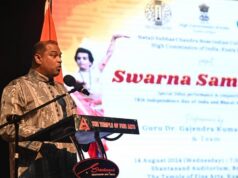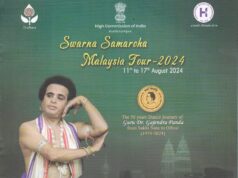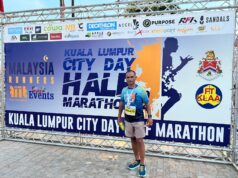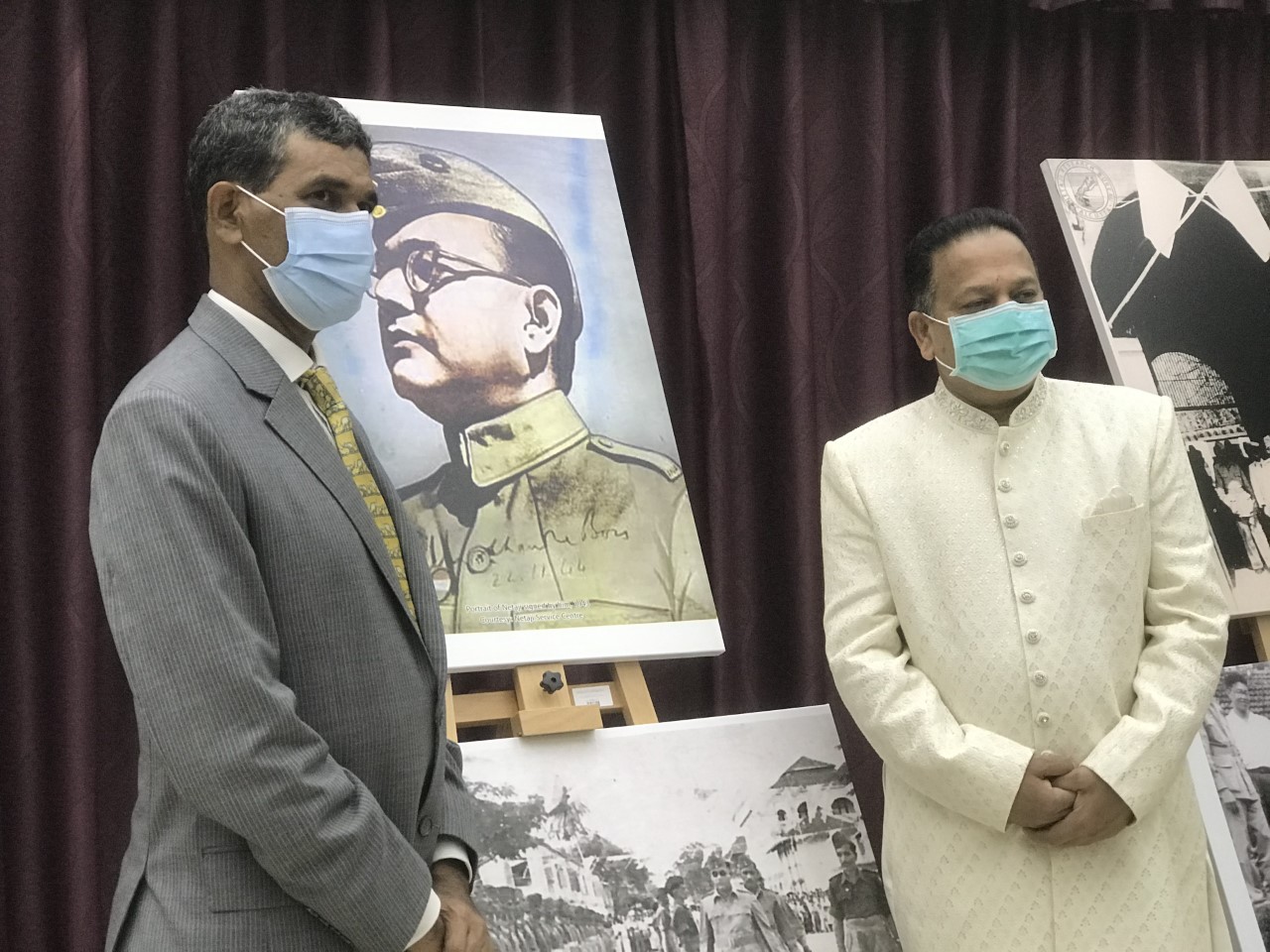

Distinguished guests and friends, Good Morning and Vanakkam.
1. It is a great pleasure to attend and celebrate the 125th Birth Anniversary of Netaji Subhas Chandra Bose hosted by the High Commission of India in Kuala Lumpur in partnership with Netaji Service Centre and Netaji Welfare Foundation.
2. When I was told about today’s function by His Excellency, the High Commissioner and the very mention of Netaji Subhas Chandra Bose name, reminds me about duty, honour, compassion, and pride.
3. Mahatma Gandhi referred to this towering personality as the “patriot of patriots” or “Prince among the Patriots” and in fact admitted that Netaji’s patriotism was “second to none.”
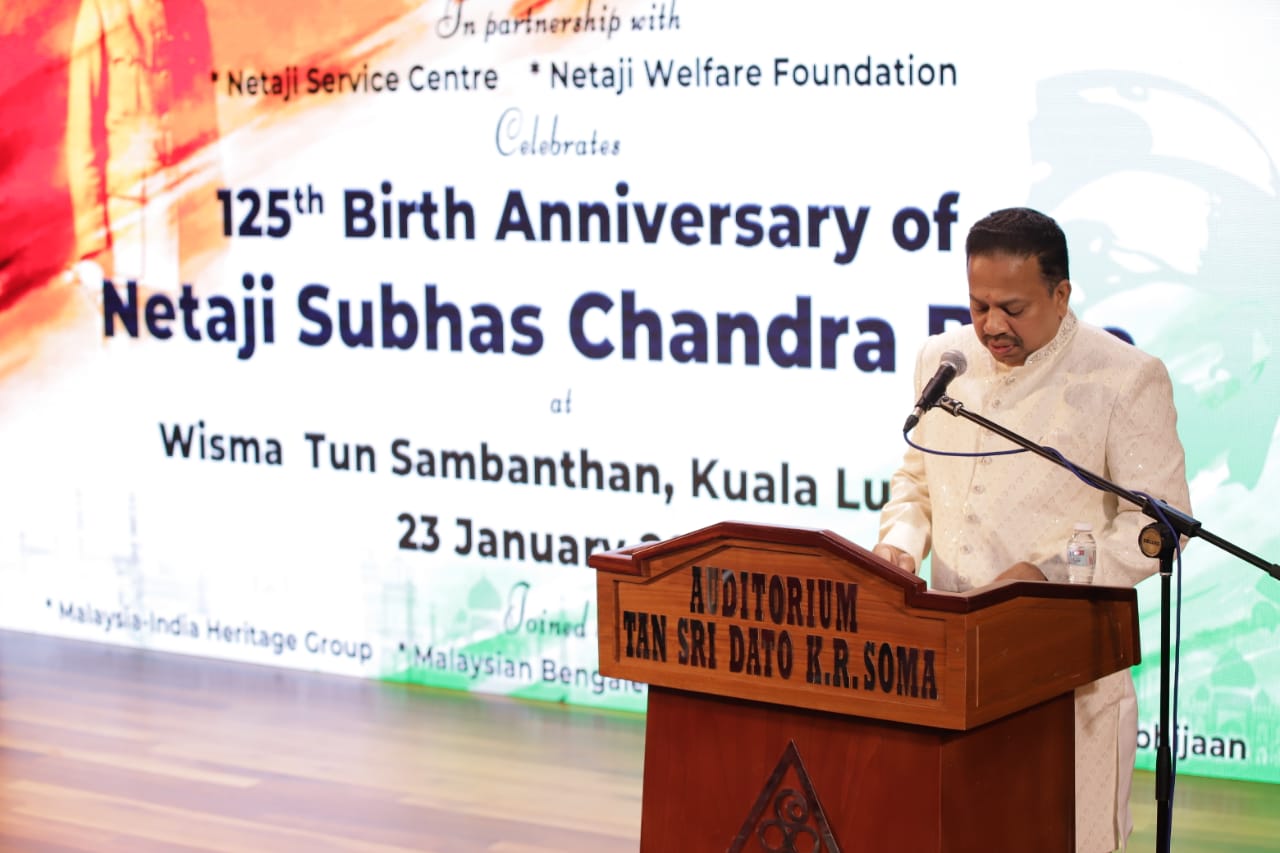

5. Although Netaji is no longer with us, with his ashes resting at the Renko-ji Temple in Tokyo, but he lives eternally in the hearts and minds of millions of Indians.
6. Subhas Chandra Bose legacy in our minds will always be as a young revolutionary leader who loved his country and his fellow people passionately and devoted his whole life to freeing India from the tyranny of imperialism.


8. Meanwhile, Subir Bhaumik, a veteran BBC journalist, wrote that the “ghost of Bose” dominated deliberations in the corridors of power in London and Delhi in the last days of British India. There is much substance in their argument that fear of an 1857 type mutiny influenced the final British decision to leave the Crown’s brightest jewel.
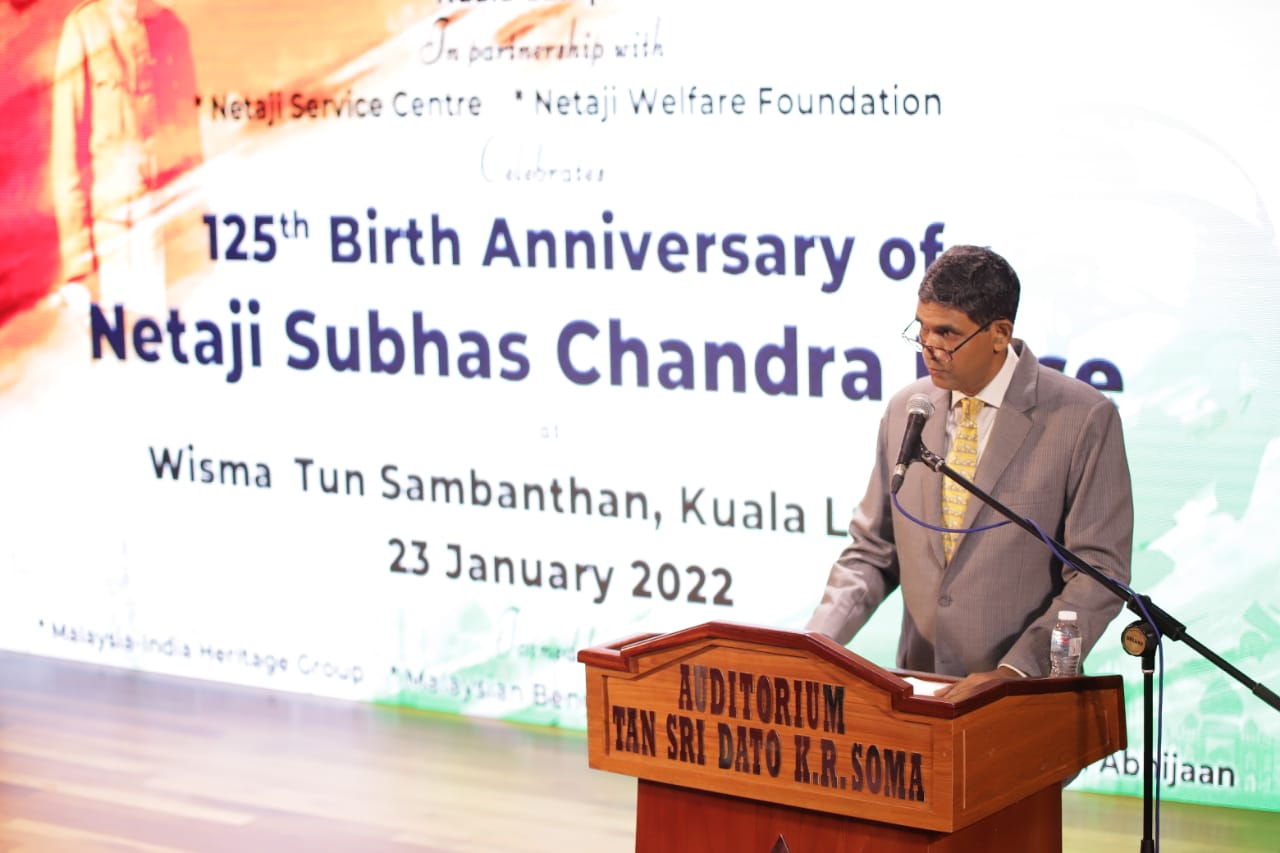

9. The collapsing of the colonial administration and with the British military being challenged and weaken after the War, provided the means by which India could secure her independence.
10. But I would suggest that we leave the debate of who is the real hero of India’s independence to the academicians to handle, whether it was the non-violent movement led by Mahatma Gandhi or was it Netaji’s Indian National Army that made the British to rush India’s independence after the Second World War?
11. And on the birth date of one of India’s most illustrious sons, I think it is fitting to reflect on the Netaji’s indomitable spirit and his immense role in awakening Indians’ self-rule.
Distinguished guests and friends,
12. The overseas Indians especially Indians in Malaya contributed immensely to the independence of mother India with their patriotic sacrifices by joining the Indian National Army (INA). Netaji reiterated in one of his speeches that it was from Malaya that the call for Total Mobilization first went out.
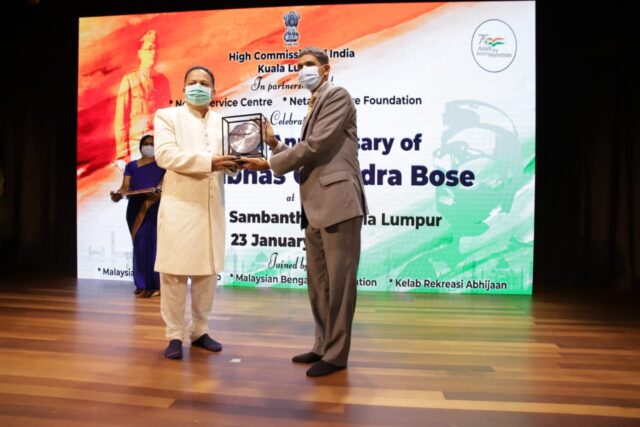

14. You know, history validates that when we stand together, united in a common cause as one community, then there’s simply no limit to what we can achieve. This is what Netaji managed to create in Malaya’s post war political and union movement.
15. Netaji planted the seed for organised political and union movement after the Second World War by mobilising the Indians in Malaya on an unprecedented scale under the INA.
16. It is reported, as a result of the efforts of the rigorously well-oiled INA’s Recruitment Department, at least 18,000 civilians enlisted, mostly Tamils from South India who were working in the many plantations in Malaya. At the same time, INA branches were opened in Penang, Kedah, Selangor, Negeri Sembilan, Johor and Melaka.
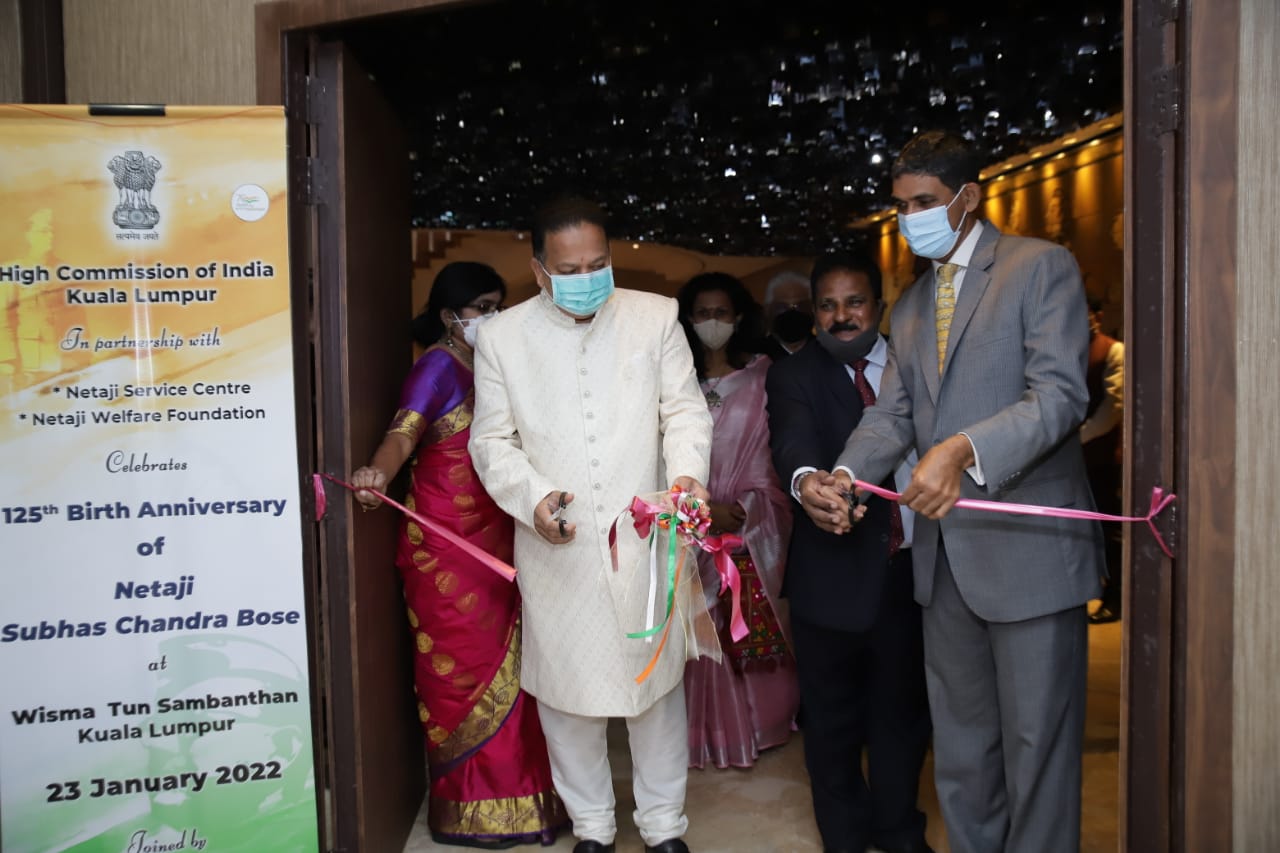

18. Toh Puan Uma Sambathan described somehow, Netaji transformed the meek Tamil estate workers into a proud and disciplined fighter. The INA contributed to the battles fought in Burma, Imphal, and Kohima.
19. The Indians of Malaya too, contributed towards the establishment of Azad Hind, a provisional government-in-exile during the latter part of the Second World War.
20. And the most important fact to be highlighted here is a that a number of people associated with the INA during the war later went on to hold important roles in Malaya’s political movement, most notably John Thivy and Puan Sri Janaki Athinahappan.
Dear Friends,
21. Netaji presence in Malaya not only led to the eventual birth of Malaysian Indian Congress or MIC, but also to the rise of political consciousness among the Malayan Indian community. Let me reiterate here again, although Netaji stay in the region was only temporary and short, but both the Azad Hind and the INA establishments has had a deep impact on the political consciousness of the Indian society in Malaya.
22. With the formation of the first Indian government, in 1943, on October 21, in Singapore, Netaji declared war on the British Empire. Netaji was the Supreme Commander of INA and head of the state of the provisional government of Azad Hind. He introduced 12 ministries in his provisional government with one ministry dedicated to women.
23. John Thivy, the founding President of my Party – Malaysian Indian Congress, joined the Indian National Army in 1943 and subsequently took part in the INA’s Burmese campaigns. He was later appointed as the Vice-President of the Indian Independence League and a Minister in the Provisional Government of Azad Hind during 1942-45.
24. Furthermore, Arunajeet Kaur in her Phd thesis wrote and I quote, “the INA, which had entrusted leadership to junior ranks, recruited from the labourers, had provided the necessary boon of entrusting organizational skills and vision to mobilize in class interests”.
25. Toh Puan Uma Sambathan further reiterated, that “at that time all MIC leaders held posts in the INA. The survivors of INA went on to become the leaders within the Malaysian Indian community.” Moreover, our labour movement after the War was often dominated by ex-INA Indians.
26. The involvement of the Indian community in the in the Indian National Army and the Indian Independence League, gave them the awareness on the importance of their involvement in politics especially about community unity and their participation in local politics.
27. Towards the end of World War 2, John Thivy, Puan Sri Janaky Athi Nahappan and other INA veterans, having returned to Malaya with a new-found political awakening, formed the first Indian political party in Malaysia, the Malaysian Indian Congress (MIC).
28. Since then, MIC has been the representative of the Indian community in Malaysia. Perhaps surprising, but certainly encouraging, is MIC’s success story and its achievements for the last 75 years. I would like reiterate here with great conviction that MIC will always strive to put the interest of our community first before anything.
Distinguished guests and friends,
29. I was informed that till recent times, there has been a lot of debate going on with regard to the entry of women officers into India’s armed forces. But about almost 70 years ago, Netaji had even formed the first women regiment of the INA – Rani of Jhansi Regiment.
30. Inaugurated in Singapore in October 1943, the establishment of the Regiment was a historic and unprecedented bold step. The Regiment consisted of around 5000 strong women came under the leadership of Commander Lakshmi Swaminathan.
31. Netaji believed the role of women was crucial in realising India’s independence from colonial rule. This was noted in 1943 during the inauguration of the regiment in Singapore, when he said, ‘if women are given a chance to play their part, they will prove the equal of their brothers in fighting for their country’.
32. Netaji even noted that Malaya had made the largest contribution to the ranks of the Regiment. Meanwhile, in the words of historian Sunil Amrith, four-fifths of the women in the Rani of Jhansi regiment – had been laborers on the plantations of Malaya.
33. According to Andaya and Leonard, the uneducated young Tamil women who left the plantations to join the INA knew little about nationalism in India, nevertheless, they embraced the opportunity to escape lives of poverty and hardship.
34. I also want to say it loud and clear that I do not agree with the well-known cliché that Indian women are weak and helpless. The women soldiers of the Rani of Jhansi Regiment proved it otherwise.
35. This is because although these women knew in the battles, hunger, thirst, fatigue, bombing, injury and death would be their constant companions but they braved themselves since they were inspired by the vision of a free India.
36. Ultimately, Malaya Indian women themselves played a key role in claiming a space for themselves in Netaji’s Rani of Jhansi Regiment to free India from the tyranny of colonialism.
37. In society where women are traditionally discriminated against and excluded from political and society related decisions, Netaji was advocating gender equality and protected the young women in the Regiment as his own children.
38. When you mention Rani of Jhansi Regiment, one name that comes to my mind is one of the founders of Malaysian Indian Congress, Puan Sri Janaky Athi Nahappan or Janaky Devar. Her husband was Tan Sri Athi Nahappan, a former MIC Deputy President in 1974 and also a former Federal Minister under the late Tun Abdul Razak.
39. Puan Sri rose to the rank of captain and second in command of the Regiment. After the formation of MIC, Puan Sri was our Wanita MIC chief and had served as the chairman of the MIC Batu branch and also as the party’s central working committee (CWC) member.
40. The Indian Government honoured her with the Padma Shri Award in 2000, the fourth highest civilian award. She was the first female living outside India to get the award.
41. She died in her home on 9 May 2014 at the age of 89 but continues to inspire generations of women especially the women wing in my Party.
Distinguished guests and friends,
42. Befitting the immense contribution by Malaysian Indians in the Netaji’s movements, Indian Prime Minister Narendra Modi, who was here for the Asean Summit in 2015, announced that the Indian Cultural Centre in Brickfields would be named after Netaji. Furthermore, for your information, the main hall of the MIC HQ is named after Netaji.
43. Indeed, a great honour to the sacrifices of our earlier generation to the freedom of mother India. And Prime Minister made very clear that the renaming of the cultural centre was not only to honour Netaji, but also other Malaysian Indians who were part of INA.
44. I would like to end my speech by reading a quote from Netaji’s speech, paying homage to the martyrs of the INA while laying foundation stone of the former INA Monument at Singapore on 8 July 1945.
45. He on that day said and I quote, “the future generations of Indians who will be born, not as slaves but as free men, because of your colossal sacrifice, will bless your names and proudly proclaim to the world that you, their forbears, fought and suffered reverses in the battle of Manipur, Assam and Burma. But through temporary failure you paved the way to ultimate success and glory.”
46. At this juncture, I would like announce that MIC is planning to erect a memorial dedicated to Netaji in our new MIC HQ complex which will start construction soon. The quote which I just read will be part of the Memorial. We hope this memorial will inspire our younger generations.
47. In closing, thank you to all INA Veterans of Malaya for your glorious sacrifices. You have my undying respect and gratitude. We can never repay the debt we owe to you all. May God bless the souls of our fallen heroes and their families.
48. Let’s continue to celebrate the good work by the High Commission of India in Kuala Lumpur in partnership with Netaji Service Centre and Netaji Welfare Foundation for many more years to come.
Dear friends, I offer all of you my heartfelt, fraternal good wishes.
Thank you.




